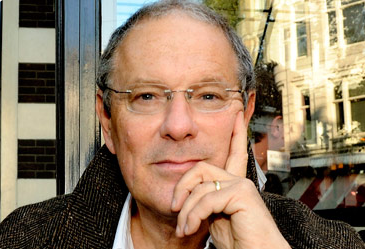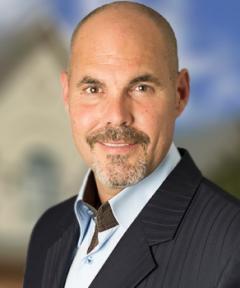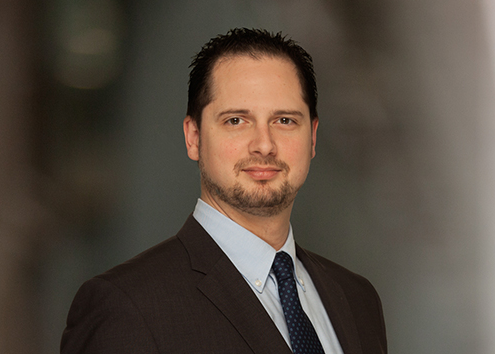Interview with Theodore Dalrymple After a year of lockdowns, social isolation, financial uncertainty and extreme political polarization, a lot of people are finding it very difficult to remain optimistic and to see a way back to some kind of normalcy. While the economic, social and political impact of the covid crisis can be easily identified and frequently discussed, the unseen, psychological pressures that millions of people are struggling with often go undiscussed. Even when such issues are being reported, the media coverage often misrepresents the actual underlying problems or rushes to naive but popular conclusions. For many years, even before the pandemic, we’ve witnessed a shift in the way we look human psychology. A lot of behaviors, personality traits and
Topics:
Claudio Grass considers the following as important: 6b.) Claudio Grass, Anthony Daniels, depression, Economics, Featured, Mental health, newsletter, Politics, pseudo-communication, self-isolation, sick government, sick society, social media, Theodore Dalrymple, Thoughts, Uncategorized
This could be interesting, too:
Investec writes The Swiss houses that must be demolished
Claudio Grass writes The Case Against Fordism
Nachrichten Ticker - www.finanzen.ch writes Die Performance der Kryptowährungen in KW 9: Das hat sich bei Bitcoin, Ether & Co. getan
Nachrichten Ticker - www.finanzen.ch writes Wer verbirgt sich hinter der Ethereum-Technologie?
After a year of lockdowns, social isolation, financial uncertainty and extreme political polarization, a lot of people are finding it very difficult to remain optimistic and to see a way back to some kind of normalcy. While the economic, social and political impact of the covid crisis can be easily identified and frequently discussed, the unseen, psychological pressures that millions of people are struggling with often go undiscussed. Even when such issues are being reported, the media coverage often misrepresents the actual underlying problems or rushes to naive but popular conclusions.
For many years, even before the pandemic, we’ve witnessed a shift in the way we look human psychology. A lot of behaviors, personality traits and emotional reactions that were seen as perfectly normal a few decades ago, are today classified as “syndromes” or “disorders” and have their own acronyms. To a large extent, instead of recognizing and accepting the fact that people sometimes get sad, sometimes get angry and sometimes they make mistakes that are entirely their own fault, we have medicalized many of the unpleasant aspects of our human experience. That way, we remove any sense of agency or responsibility in creating our own problems, but also in resolving them. The state, employers, schools and even fellow citizens must provide support and special accommodations on demand. We’ve become fragile and childlike. We “need help”, we must have safe spaces, trigger warnings, mental health vacations and life coaches.
The problem with this tendency to recast normal behaviors and reactions as serious conditions that need special attention is that there comes a point where all the new maladies start to crowd out and displace real and severe conditions. What’s even more dangerous, especially in the context of the present recession, is that once we’re used to live-streaming our own mental breakdown over the lack of vegan options in a restaurant menu and the world predictably applauds us for it, we really cannot be expected to handle a real crisis exceptionally well.
To explore these ideas further and to discuss many other important trends and shifts that we’re seeing, especially over the last year, I turned to Anthony Daniels, whose books, articles and lectures I’ve always found deeply illuminating. Known by many by the pen name Theodore Dalrymple, he is an English writer and retired doctor, who has worked in Africa, London’s East End and Birmingham. He has worked for many years as a prison physician and psychiatrist and he has written for many publications round the world, including the Spectator, the Wall Street Journal and the National Review.
———————————————
Claudio Grass (CG): A lot has been said and written about the economic and financial impact of the covid crisis and all the lockdowns and restrictions that came with it. However, the mental health implications haven’t really received the attention they arguably merit, at least not by mainstream media or government officials. Over the last year, we saw self-reported depression rates creep up in many Western nations, while excessive alcohol consumption and the abuse of prescription drugs also jumped. Do such trends raise concerns over longer-term problems or will we all simply snap back to normal once the crisis is over?
Theodore Dalrymple (TD): The first thing to say is that I do not like the term ‘mental health.’ Was Isaac Newton mentally healthy, or Michelangelo? I think part of the problem is very concept of mental health. It implies that there is some state or condition of mind deviation from which is analogous to illness. Once this idea takes hold, it is clearly up to an expert to cure the person, or better still prevent him from getting ill in the first place. This expectation cannot be met, but the idea that it can be makes people more fragile.
Second, people clearly vary much in their response to confinements, lockdowns, closures of resorts of entertainment, etc. For myself, I have reached the age of misanthropy or self-sufficiency when these things make comparatively little difference to my life. I have plenty of space and plenty of things to do, in essence reading and writing. But that does not make me mentally healthier than a young man who is frustrated because he cannot play football with his friends and becomes ratty – moreover living in a very confined space.
Depression is so loosely defined a term that it has become almost valueless as a diagnosis. How often have you heard someone say ‘I’m unhappy’ rather than ‘I’m depressed?’ The semantic shift is very important. The proper response to someone who says that he is depressed is to give him antidepressants, even though these don’t work in the majority of cases, except as a placebo, and have potential side-effects. It is always tempting for people who are unhappy to drink alcohol – to drown their sorrows, as we say. Of course, if you drink too much, you might become really and truly depressed. A person who did not respond to the current situation with a little gloom would be odd.
CG: Another trend that emerged amid the pandemic was the remarkable surge in protests, riots and overall public discontent. Of course, a lot of this anger was there before the virus ever emerged and a lot of these protests were fulled by grievances that appear to have nothing to do with it. But could it be that the social isolation, the “cabin fever”, and the disruption of people’s normal routines contributed to the escalation and the violence that we saw in the US and in many European capitals over the past months?
TD: I think you could put it the other way round: it depends on which end you look down the telescope. For myself, I have been more impressed by the meekness with which people have accepted all kinds of prohibitions, especially those who probably have less to fear from the virus than from road traffic accidents. They have put up with cabin fever remarkably well, no doubt in part because of the self-isolation and pseudo-communication of the social media to which they are accustomed anyway. Without them, I think things could have been a lot worse from the point of view of unrest. Of course, young people felt that they had been betrayed anyway, sold a bill of goods, and I tend to agree with them. But throwing a brick through a window, though it relieves feelings for a few minutes or seconds, is hardly the answer.
CG: Since the start of the pandemic, we also saw a lot of new “experts” pop up. Hordes of newly minted “epidemiologists” can be found in the comments section of any online publication, endorsing or disputing the findings of the latest studies and sharing their own scientific analyses. As an actual doctor, do you see this as merely the “pandemic edition” of the old “patients googling their symptoms” cliché, or does it say something about the public’s view of science and the ways that it has been used by governments throughout this crisis?
TD: It seems that we are all virologists and epidemiologists now, as we were once economists. The public is surely ambivalent about expertise and experts. On the one hand, they don’t like to be bossed about on the say-so of experts, but on the other they like to be given explanations and to know what to expect next, and what the solution is.
Many have a view of science that it is a body of facts and it comes as a surprise to them to discover that scientists can disagree fundamentally on the basis of the same, or alternative, facts. Governments, already not trusted very much, hide behind the skirts of experts, but when experts disagree, governments have to choose between them, and not surprisingly vacillate: they are thinking about elections as well as public health. As a retired doctor, I have no special insight into the situation and in fact very few people have insight into more than one or two aspects of the situation. Unhappily for those in government, they have to take an overall, super- or suprahuman view.
CG: All sorts of economic indicators show there is a considerable rise in financial uncertainty in many households and point to a rise in poverty rates in England and elsewhere in Europe. You have decades of direct professional experience with poor and marginalized segments of society, much of which is reflected in your book, “Life at the Bottom”. In your estimation, is more welfare spending and more state support going to be enough to deal with significant poverty increases?
TD: It seems to me that Britain is particularly vulnerable for two reasons; first, successive governments have, deliberately or not, smashed up all forms of social solidarity that do not pass through itself to an extent not equalled elsewhere, using deficit-financed social security to pick up the pieces of a society without (for example) families. I am not an economist, but it seems to me where it uses loan simply to maintain consumption at an unearned level, a society paints itself into a corner from which it will be difficult for it to escape. In short, prudence has been disregarded both by the population and the government.
CG: A lot of the cases you have written about are of people who have been chronically stuck in those socioeconomic margins, as they’re often born into them and have few real interactions with anyone outside of them. But might we now be facing a new phenomenon, of the suddenly and forcibly marginalized? What happens to a person when, through no choice or fault of his own, he stops working, producing and providing, and becomes dependent on the state to put food on the table?
TD: Never having been in this situation, I should be cautious in my reply. I know, however, that I should hate it. In Britain, we have a National Health Service in which the patient is often treated as a petitioner at the court of an all-powerful monarch – sometimes well and kindly, sometimes badly and negligently. But the position of being a petitioner is in itself humiliating. In England, I am granted the privilege of seeing a doctor by receptionists who say yea or nay. When this situation is extended to the whole of existence, it is very much worse.
People vary in their response: some search might and main for a way out of it, trying their hand at something, others resign themselves to it becoming inert, some grow angry (the cold charity of the state is never sufficient and is not given gladly), yet others resort to defrauding the state as best they can. This is wrong, and in the long-run harmful to a person, but at least it shows some spirit. The other thing also to say is that, in Britain at any rate, most people have lived up to their incomes without any thought that they might one day need reserves. On the contrary, they have tended to spend more than they earned. This, of course, makes them more vulnerable to dependence once the crunch comes.
CG: You have argued that we humans are problem-generating creatures and that we’re known to invite misery and strife into our lives just to escape boredom, one of the most unbearable burdens of the human condition. Indeed, we saw a lot of that in previous years, where the great debates in most advanced economies where around offensive words, micro-aggressions, safe spaces and pronouns. As this recession deepens and as vast swaths of the population start facing real problems, like joblessness or bankruptcy, do you expect such solipsistic discussions to give way to more substantial issues?
TD: I think that this has already happened to an extent. To complain that you find something offensive in Jane Austen, for example that there is nothing offensive in it when there ought to have been considering the times in which she lived, would now make you appear what you always were before in any case, namely a spoilt brat. But whether real hardship will make people better or worse as human beings, it is impossible to say. Some will probably be better, some worse (I sound like the famous economist who, when asked by the BBC after the collapse of Lehmann Brothers, whether there would be a recession and if so a deep one, replied that there might or might not be, but if there were it could be long or it could be short, deep or shallow.)
CG: Social media have long been blamed for the tribal state of our public discourse and even for the violence that often results from it. However, the human need to belong to a group and the tendency to view outsiders with suspicion was always there. Is it thus unfair to put the blame on modern communication tools for our own failings? Or did they actually manufacture toxic divisions that wouldn’t have organically emerged?
TD: This is a very difficult question. I have noticed that much of the commentary that follows articles on the internet is nasty and insulting in tone, as if calling a person a name were a logical refutation of what he said. The question I ask myself is whether all this bile existed before the internet or whether it was cultivated by the internet. I have no definite proof of this, but I suspect the latter.
The ability to reply angrily both immediately and anonymously removes virtuous inhibitions. The quantity of mental bile is not fixed, so that if it does not come out in one way it will come out in another, even more harmful (‘I had to kill her, doctor,’ as one murderer said to me, ‘or I don’t know what I would have done.’) The expression of bile becomes a habit and a self-reinforcing one as others react to bile with greater bile. But, of course, the bilious on the internet may not go on to commit violent or illegal acts; I don’t know.
CG: Phenomena like tribalism and political polarization have been plaguing our societies for years already, but these internal divisions became markedly sharper and deeper over the last year. These days, the warring factions are not fighting over opinions and ideologies, but over facts, disagreeing on the nature of reality itself. You’ve seen extreme versions of this in your professional capacity in the past, trying to communicate with people with divergent views on what is and isn’t real. Do you have any lessons or advice that we might use as everyday citizens to bridge that giant gap and to bring back productive dialogue?
TD: I am not sure that I do have anything to say. It seems to me true that self-control and self-respect have become undervalued of late years or decades. Yesterday, for example, I saw an article by a student at University College, London, informing readers of the best places to cry in public (certain public toilets were particularly good). She listed the beneficial effects of sobbing in public, including not caring – presumably, among other things, about what others think of you.
Psychotherapy has played a disastrous part here, suggesting to people that an unexpressed emotion will turn inwards and poison the self. These are not ideas conducive to calm and rational debate (what argument could be more conclusive than a good sob?). The idea of not expressing oneself never crosses many minds as it ought.
Claudio Grass, Hünenberg See, Switzerland
This work is licensed under a Creative Commons Attribution 4.0 International License. Therefore please feel free to share!
Tags: Anthony Daniels,depression,Economics,Featured,Mental health,newsletter,Politics,pseudo-communication,self-isolation,sick government,sick society,social media,Theodore Dalrymple,Thoughts,Uncategorized








